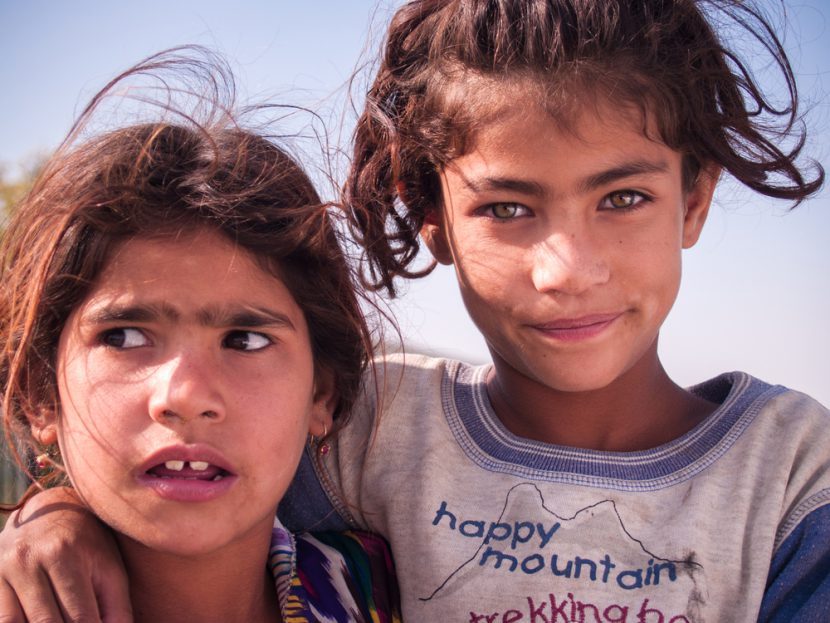Despite the fact that Uzbekistan’s legal framework generally prohibits forced and child labor, there are indications that forced child labor in the state-controlled cotton fields has occurred in at least five locations in the country since 2015.
Abusive labor system in country’s cotton industry
Uzbekistan is one of the world’s largest cotton producers, but this industry’s yearly output primarily still rests on forced mobilization orchestrated by the central and local authorities and compulsory labor of approximately 3 million people with jobs in the public sector, persons who receive social benefits and students regardless of their age.
Up until 2012 the children of Uzbekistan were the usual and most vulnerable targets in the state’s mobilization policies for its cotton industry.
International pressure has forced country’s government to curtail previous conscription of children from their schools, and to change its focus to categories of people who are more dependent on the government’s services and resources.
The child labor has been curtailed but not completely abandoned
The government’s declarative commitment towards eliminating all forms of economic exploitation of children is fully in accordance with relevant international standards, but such practices are mainly mitigated because of the country’s economic benefits and their partial continuation reflects the possibility of full restoration if international pressure would cease in the future.
For example, Uzbekistan has formally included cotton harvesting on its official list of hazardous and harmful occupations for people who are under 18 years of age.
Uzbekistan is also bound with provisions that set the minimum age for employment at 15 years and specify that participation of children older than 13 in light work is permitted unless such affairs compromise their health or hinder education.
Nevertheless, enforcement of those provisions is seemingly not comprehensive and there are indications of unacceptable and harmful involvement of certain Uzbek authorities in disrupting children’s rights. In some parts of the country, this includes hampering their freedom from economical exploitation and disrupting their access to adequate education.
The right to undisrupted education is essential for children’s development
Allegedly, in at least five areas in Uzbekistan since 2015, the national cotton industry has undermined children’s rights by forcing them to leave their schools during autumn and spring months. It has been confirmed that in at least two locations children as young as 10 were sent to work into the cotton fields for more than a month.
Despite the arguments that economic growth based on this industry’s output provides significant possibilities and resources for stirring further development and reaching the necessary level of respect for children’s rights, institutionalized exploitation of children’s labor in no circumstances can represent a path towards creating an environment suitable for the development of every child’s potential.
Children in Uzbekistan must not be subject to measures that prioritise the interests of the state-controlled industry over their personal plans and objectives from an early age. They should be instructed in a way that allows them to build their future in accordance with their unique potential and enjoy a social life without any limitations.
In some places picking cotton is more valued than attending classes
As a result of the reported forced mobilization, schools are suffering from closures and teacher shortages for almost a third of the academic year. This is covered by falsifying attendance in order to hide evidence of forced labor which affects teaching staff and students.
Forced labor of children in Uzbekistan is definitively not mandatory and prescribed by the law, but since school officials (with the silent support of local authorities) often have a crucial role in mobilizing students they are understandably not in the position to refuse such requests or simply are not aware that such treatment is inexcusable.
Indications of local enforcement officers’ active role in hiding the children in the presence of entities which monitor labor practices and participation of pupils from grades 5-9 (aged 6-14) in cotton picking for more than a month are especially worrying.
Since threats, intimidations and cover-ups remain distinctive features of these conscription policies, informing human rights organizations about the existence of child labor currently represents the only efficient remedy for suppressing this exploitation.
The right to education and free childhood are key preconditions for fulfilling the potential of every child, and many children in Uzbekistan are unfortunately enjoying neither of those rights.
Even children who have never been mobilized and transferred to a cotton field to work in harsh conditions are suffering from forced mobilization which affects their teachers and friends. As a consequence, the education system is regressing rapidly and each year it will be more difficult for young people in Uzbekistan to exceed and modify the system that perceives forced labor as an acceptable instrument for development of their country.
Written by Goran Batinica
Proofread by Faiz Kermani
References:
Human Rights Watch (June 2017), ‘We Can’t Refuse to Pick Cotton’ : Forced and Child Labor Linked to World Bank Group Investments in Uzbekistan. Retrieved from: https://www.hrw.org/sites/default/files/report_pdf/uzbekistan0617_web_3.pdf
Financial Times (June 27, 2017), World Bank accused over child labour in Uzbekistan. Retrieved from : https://www.ft.com/content/215070fc-5b4b-11e7-9bc8-8055f264aa8b
The Uzbek-German Forum for Human Rights (n.d). Child Labour in Uzbekistan. Retrieved from: http://uzbekgermanforum.org/child-labour-in-uzbekistan/


